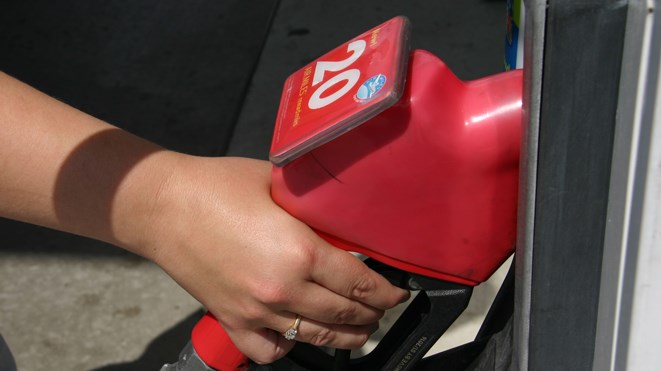THUNDER BAY – Ontario’s Official Opposition is proposing the government send $200 cheques to all households in Northern Ontario, saying the step would help residents struggling with record-high gas prices that are spiking even higher in the north.
The Ontario NDP plans to put the proposal forward with an Opposition Day motion at Queen’s Park next week, the party announced Friday in a press conference featuring the ONDP’s significant crop of Northern Ontario MPPs, as well as regional candidates in the provincial election looming on June 2.
That included Thunder Bay–Atikokan MPP Judith Monteith-Farrell and Thunder Bay-Superior North candidate Lise Vaugeois, as well as Kiitwetinoong MPP Sol Mamakwa.
“What we’re facing in this region is an affordability crisis,” said Monteith-Farrell. “People need to drive. I hear this mostly from seniors – they’re on a fixed income and they’re suffering.”
NDP leaders argued the region’s spotty public transit infrastructure made the rising cost of gas a particular crisis in the north.
“We depend more on our personal vehicles to get to work, to get to school, for our personal activities,” said MPP Jamie West, of Sudbury. “We need to drive.”
The cost of a litre of regular gas was sitting at $1.668 on average across Ontario on Friday, according to the CAA, and at $1.913 in Thunder Bay.
Northern representatives called the discrepancy an unfair burden on northern residents, with MPP Guy Bourgouin (Mushkegowuk-James Bay) questioning why gas was similarly selling for $1.66 a litre near his Queen’s Park office, but $1.91 in his home riding.
“If we pay the same for a case of beer, why can’t we do the same for gas?” he asked.
Erika Lougheed, NDP candidate in the riding of Nipissing, said the rising cost of gas has a disproportionate impact on lower-income workers, relating a conversation with a personal support worker who told her she was missing meals to afford gas to get to and from work.
The proposal has been slammed by the Green Party, however, with leader Mike Schreiner saying it amounts to an “incentive” to use fossil fuels, and proposing the government instead cut public transit fares in half.
“The other parties, they put forward plans that will increase and incentivize the use of fossil fuels, worsening the escalating cost the climate crisis,” he said during a recent press conference.
Monteith-Farrell emphasized the NDP’s rebate proposal was meant as a stop-gap measure to support those who are struggling, not a long-term solution.
“This is not a permanent solution,” she said. “We have a Green New Democratic Deal that has a whole plan to tackle climate change… This is temporary relief for the people in Northern Ontario.”
Vaugeois said it was unrealistic to expect most workers in Thunder Bay could turn to public transit.
“We have some local transit, but it’s not all that convenient for most people,” she said. “It takes a long time.”
The Ford government, meanwhile, has so far failed to deliver on its 2018 election promise to lower the cost of gas by 10 cents a litre, MPPs noted.
The Progressive Conservatives scrapped Ontario’s cap-and-trade system after being elected, a step Ford framed as intended to lower prices by 4.3 cents a litre, but the move was always a non-starter given the federal policy that imposes a carbon tax on provinces without their own carbon pricing plans.
Ford promised last year to implement a 5.7 cent cut by this year’s spring budget, but has since backtracked, saying he’ll only do so if matched by the feds.
The government has introduced legislation that would temporarily reduce taxes on gas and diesel by 5.7 cents per litre, but the policy wouldn’t come into effect until after the election, proposed from July 1 to Dec. 31.
The NDP argues there’s no guarantee that solution will be effective, saying fossil fuel companies could simply jack up prices by a similar amount.
“If the gas tax is temporarily lowered, gas companies can just jack up the prices and eat those profits themselves,” the party said in a statement.
The NDP has also previously called for the province to regulate gas prices by setting a weekly price or daily maximum.
A planned increase in the federal carbon tax will increase the tax by two cents per litre on April 1.
